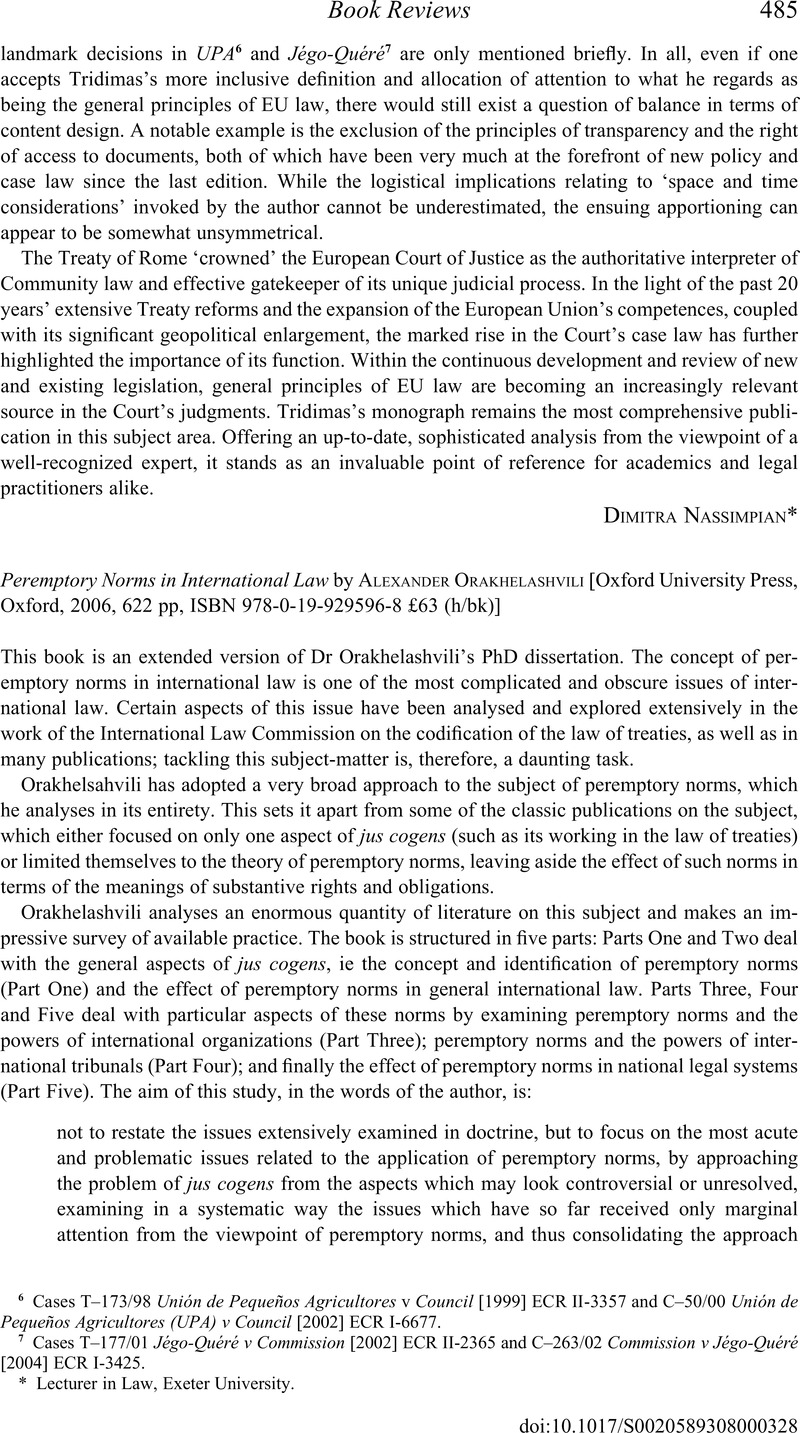No CrossRef data available.
Published online by Cambridge University Press: 09 May 2008

1 See, eg, publications by CJ Redgwell: ‘Reservations to Treaties and Human Rights Committee General Com ment No. 24 (52)’ (1997) 46 ICLQ 390; idem, ‘Universality of Integrity? Reflections on Reservations to Human Rights Treaties’ [1993] BYIL 279; idem, ‘US Reservations to Human Rights Treaties: All for One and None for All?’ in M Byers and G Nolte (eds), United States Hegemony and the Foundations of International Law (Cambridge University Press, Cambridge, 2003) 392.
2 D Bowett, ‘Reservations to Multilateral Treaties’ [1975–76] BYIL 68.
3 Orakhelashvili cites (on p 270) Akehurst as saying that ‘it was open to States to take third-party countermeasures only on one of these three cases: in enforcement of judicial decisions; as the affected party to the treaty under Article 60 (2) of the Vienna Convention; or in response to the violation of rules prohibiting or regulating the use of force’. It would appear necessary to comment that Article 60 (2) of the VCLT–material breach, does not actually deal with countermeasures. As it was noted many times before and more recently by James Crawford: ‘Countermeasures are to be clearly distinguished from the termination or suspension of treaty relations on account of the material breach by a treaty by another State, as provided for in Article 60 of the Vienna Convention on the Law of Treaties. Where a treaty is terminated or suspended in accordance with article 60, the substantive legal obligations of the States parties will be affected, but it is quite different from the question of responsibility that may have arisen from the breach’ is J Crawford, The International Law Commission's Article on State Responsibility. Introduction, Text and Commentaries (CUP, Cambridge, 2002) 282.
4 There are very strong views that this concept is ‘overused’ in international law and that its nature is unclear. See, eg, Separate Opinion of President of the International Court of Justice in the 2004 Advisory Opinion on Legal Consequences of the Construction of a Wall in the Occupied Palestinian Territory, in particular [2004] ICJ Reports 207, 216.